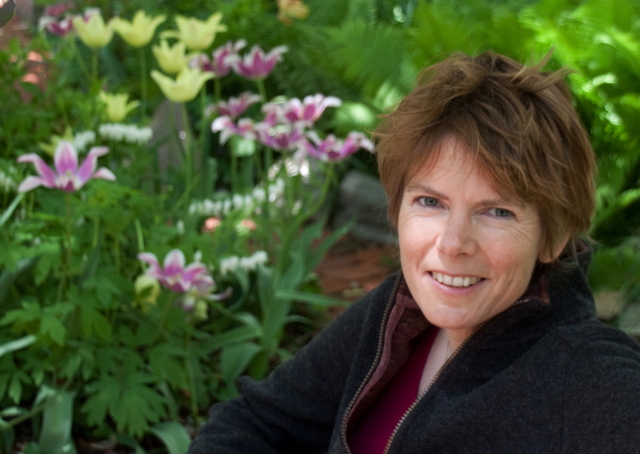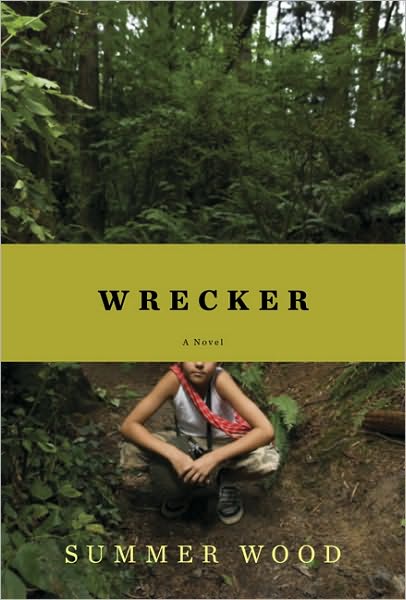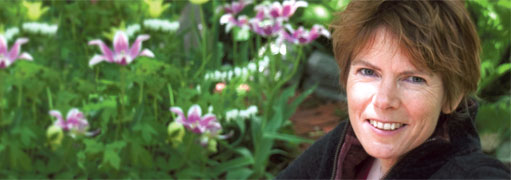Summer Wood’s novel Wrecker is set in the heart of Humboldt County, Calif. But don’t let the location fool you. It’s not about that. The book follows a little boy, the titular Wrecker, as he’s sent to live with relatives after his mother winds up in prison. It is Wood’s second novel. Her first, Arroyo, is set in the fictional New Mexico hamlet of Los Fuegos and concerns hitchhiker Willie Lee Woolston and the characters she encounters. Just reading that quick description conjures images of Cannery Row or some other Steinbeckian world of lovable layabouts.We caught up with Wood via email to discuss literature and her dream of being a professional basketball player—at this point, a dream deferred. Tell me about the new book: What’s it about? And don’t say it’s about 300 pages. Ah, you beat me to the punch. OK. Wrecker is set amid the giant trees of northern California’s Humboldt County, and what it’s not about is what Humboldt’s famous for, OK? Because I do not know anything about that business. Not a thing. That’s my story, and I’m sticking to it, officer.Seriously, though? Wrecker is about love. Really quick wrap-up: In 1965, a little boy is born in a public park in San Francisco. Three years later, his mom is sent to prison on serious charges, and he’s sent up to live with very distant relatives in the wilds of Humboldt County. Turns out that bunch is trying to cut loose from society, find a different way to live, and their plans sure don’t include raising an angry, destructive 3-year-old. The book is about how this motley group of eccentric individuals come together, in the most unexpected way, to form a family around this boy—and how his birth mom, sentenced to 15 years in the federal pen, hangs on through that special kind of hell with the thought that one day she’ll be reunited with her son. It’s a story for anybody who’s ever raised a son, for sure. But it’s also a story for anyone who’s been in love. Which is, I hope, everybody.The rest of y’all can just read it to figure out all the code words for that unmentionable business. Who’s your favorite writer—the one who inspired you to become one yourself, or is at least entertaining enough to reread over and over? I learned to write by reading great writers, so there are a lot of them. Kind of depends on the weather, which one I pick—but today the sky and trees feel particularly close, so I’d have to go with Flannery O’Connor. Her stories floor me. A real American original, with a sense of humor so deep and dry and a moral drive that hinges on an almost sacred appreciation for the absurd. The way she taps the vernacular to point toward these universal spiritual “truths”—shoot, she’d probably roll over in her grave if she heard that. Let me just say that I could read her every day for the rest of my life and never tire of her work. You live in Taos. Why would you want to do that? I know, I know, it’s such a burden … the mountains and wild animals and water flowing in the acequia and all that … . I love a lot of places and I travel a fair amount, but wherever I land, it takes me about a day and a half to get homesick for Taos. And then I’m miserable to be around. Always talking about the great sense of humor people in New Mexico have, the appreciation for eccentricity, the respect for traditional ways, the emphasis on relationship over personal ambition—I’m like a broken record. And that’s before I even get to talking about the landscape. The sky. The rocks. The forests, the elk and the mountain lions and the cutthroat trout. See? Don’t get me started.The bottom line is I feel good here. I feel like myself. Or—I like the myself this place brings out. What can people expect by picking up your book—laughs, cries, spiritual fulfillment? I wish I could claim that you’ll get rich and find ultimate satisfaction by reading Wrecker . I don’t know, maybe you will. But if you’re like other people who have read the book, you might get caught up in the story and grow to really care about what happens to the characters. Maybe you’ll think differently about what a family is when you’re finished, or maybe you’ll have your own two cents to add to that question. I’m not going to say you should have tissues handy because it’s not a tearjerker, but there are a few spots where your throat might get a little tight. I hope you laugh a lot, and in the right places. I’m too shy to repeat what one friend said about the sex scenes, but I’ll just say that it made me extraordinarily happy (and a little embarrassed).And if you tend to wear earth tones, you can count on some nice color-coordinating wardrobe action going on if you carry the book around under your arm. It’s a very attractive green. For those who read your first book, Arroyo , how does this one differ? That’s a hard question. It’s a different setting, different characters, all that. But I think some of the same themes reverberate. I can’t seem to get away from writing about love. Also about food. But in Wrecker it’s not posole, it’s venison stew. In Wrecker people are climbing trees, not the cliffsides of Arroyo . Also, the author photo on this new one is, uh, more, uh, mature. It takes me a long time to write a book, and the effort shows up in the lines on my face. Why be a writer when there are so many other better-paying jobs, like guttersnipe? Funny you should ask that. I didn’t make the cut as a guttersnipe.Wait. What the hell is a guttersnipe? Sounds like a long-beaked bird with webbed feet and a slightly seedy disposition.Honestly, I just always and forever have wanted to be a writer. Which has translated, for me, into writing as a kind of vocation, if not always a paying job. I’ve been lucky to learn how to do plenty of other things that do pay, like building houses (I was a carpenter and then a designer and building contractor for 20 years), waiting tables before that, and teaching since the books have started to come out. All of that being-in-the-world feeds into the writing, so I never regret it—but I am deeply grateful that now the writing is helping to pay the bills, too.Probably what made me want to be a writer is just an addiction to stories. I love to listen. And I love the muscularity and musicality of language. It’s a natural fit.Put less poetically: It’s so much fun to make shit up. Just can’t help myself. How many more books do you have left in you? And what would you be doing if you weren’t a writer? In response to part A: Plenty. Which is an imaginary number larger than one but smaller than 50. And part B? I would be a professional basketball player.Don’t laugh, John. Stop laughing. That’s not nice. For all of us would-be novelists, how did you go about getting your book published by a real, honest-to-God publisher? Is it a nauseating amount of work? Same way anybody does it: You write, and write, and write, and write, until you’ve got something you really believe in. Having that belief in your work goes a long way in convincing others to take a chance on you. Then you cross your fingers, say a prayer and hit the pavement.I don’t think there’s any way around that crushing amount of work. And I think it helps to have a certain amount of luck. I got lucky by winning a major award—from A Room of Her Own Foundation—and that certainly helped to bring my work to the attention of publishers. But with that or without it, you’ve got to work every angle you can, and that means gaining a good understanding of how the publishing system works, and how you might fit into it.Nowadays, there are a lot more legitimate opportunities to self-publish. Still, either route you take, it’s a ridiculous amount of work. Most of that work should be directed to becoming the best writer you can, developing your chops and always growing in your craft. For me, that’s the part that matters. Learning to listen in to the heart of the story and bring it to life on the page—nothing else matters like this. You also teach writing. Do you love it, or is it just a way to make ends meet? When I first started teaching, I wasn’t sure how well I’d like it, or whether I’d be any good at it. I pretty much taught myself to write through tons of practice and out of a deep love for the work of some dead writers. But it took me a long time to develop my skills; a really long time. And I came to realize that, while there’s no way to avoid the work, it is possible to cut down on the time if you’ve got a good teacher. So that’s how I go about it, now: I see myself more as a guide than as a teacher per se, because what I try to do is to discern the broad outlines of a writer’s specific natural talent, and devise a strategy to cultivate those strengths while addressing gaps in craft or experience. A lot of it is about asking the right questions, opening dialogue. Each writer has to negotiate her or his own relationship with the elements of story, but it doesn’t hurt to have someone alongside to say, Have you thought about this? And it turns out that I do love it. I love watching people discover things, hit their stride. I love having a small hand in that. Also it’s a lot of fun to hang around with people who like the same things I do, who don’t get freaked out by what I think of as that peculiarly writerly gleam in the eye. We’re all junkies for narrative. As different as our styles may be, we’re all trying to get to that solid kernel of—what? Truth?—at the center of the story.
Summer Wood’s reading and discussion of Wrecker
Tuesday, May 3, noon
UNM Bookstore
2301 Central NE








